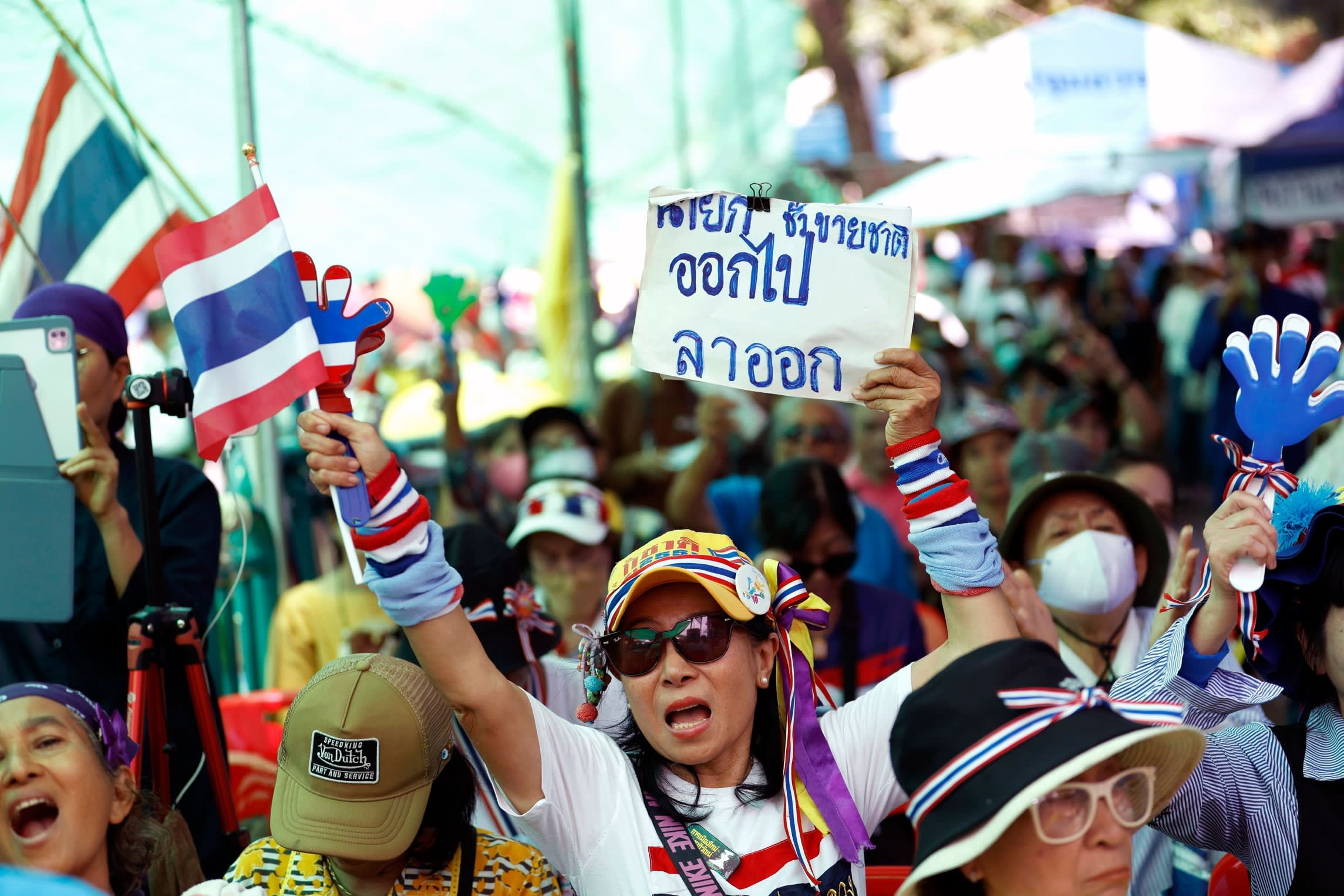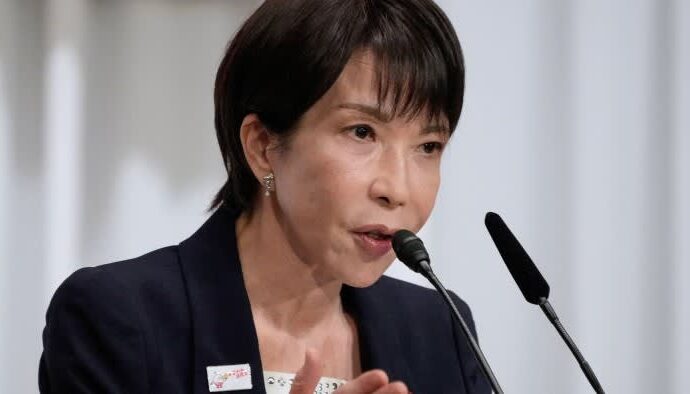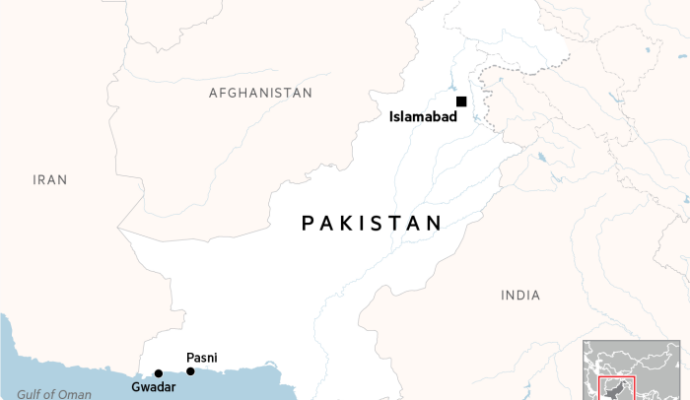Unlock the Editor’s Digest for free
Roula Khalaf, Editor of the FT, selects her favourite stories in this weekly newsletter.
The future of Thai Prime Minister Paetongtarn Shinawatra is hanging in the balance as coalition infighting and a leaked phone call with Cambodia’s former leader over a recent border skirmish pit her against the powerful military-royalist establishment.
Paetongtarn’s government, which has been in power for 10 months, holds a thin parliamentary majority, after a conservative coalition partner withdrew from the alliance this week.
Other coalition parties are deliberating whether to back the prime minister or abandon her, which would force her into a minority government or could even trigger new elections.
Discord had been brewing over a critical cabinet post, but tensions came to a head this week after former Cambodian leader Hun Sen leaked a recording of a call with Paetongtarn over a border dispute between the neighbouring counties.
In the call, Paetongtarn appeared to blame Thailand’s military for aggravating the dispute, which broke out last month and resulted in the death of one Cambodian soldier. She is also accused of taking a conciliatory tone that undercut Thailand’s national interests.
“The chances of Paetongtarn being able to stay in power are slim,” said Napon Jatusripitak, a visiting fellow at Iseas-Yusof Ishak Institute in Singapore.
He added that the prime minister’s coalition partners would be hesitant to back her against a growing public backlash, but some could be convinced to stay if Paetongtarn was replaced by another candidate from the alliance.
“The problem is not simply about the numbers; it’s about having a leader who is well accepted by the Thai public,” he said.

The turmoil threatens to shatter a truce between the Shinawatra family and Thailand’s powerful conservative establishment, which allowed former prime minister Thaksin Shinawatra, the political clan’s patriarch and Paetongtarn’s father, to return to the country in 2023 from exile.
The Shinawatras have repeatedly clashed with Thailand’s royalist-military establishment, resulting in coups that removed Thaksin and his sister Yingluck from power.
Former prime minister Srettha Thavisin, another Thaksin ally, was removed from office last year over a cabinet appointment that the court said breached ethical standards, resulting in the elevation of then-37-year-old Paetongtarn.
Thitinan Pongsudhirak, a professor of political science at Chulalongkorn University in Bangkok, suggested that the chances of similar interference by the establishment this time were low. But he said that could change if the instability persisted.
“If Paetongtarn clings to office and this political murkiness drags on, then the risk of some kind of intervention to change the status quo would rise,” he said.
Pressure had already been mounting on Paetongtarn, who has never previously held public office.
Her popularity has waned as the economy has floundered. Thailand’s SET equities index is down 23 per cent this year, among the world’s worst performers, and her party’s flagship campaign promise to distribute $14bn in cash handouts has been delayed.
Export-reliant Thailand has made little progress in trade talks with the US, which has threatened to levy a 36 per cent tariff rate.
Paetongtarn has been locked in infighting with the Bhumjaithai party, the second largest in her coalition, over the powerful interior minister post.
In late May, a long-running territorial dispute with Cambodia brought another headache after a brief cross-border exchange of fire resulted in the death of a Cambodian soldier. The incident inflamed bilateral tensions and threatened to choke off trade and electricity flows between the countries.
This week, Paetongtarn called Hun Sen, who was Cambodia’s prime minister for almost four decades before he handed power to his son Hun Manet in 2023, and who has long-standing ties to Thaksin, in an effort to quell the tensions.
But Hun Sen’s release of a recording of the call, in which Paetongtarn referred to the former Cambodian leader as “uncle” and urged him to ignore sabre-rattling by Thai military officers, prompted Bhumjaithai to quit the coalition on Wednesday, accusing the prime minister of damaging Thai sovereignty and dignity.
Paetongtarn later apologised and said her remarks were a negotiating strategy.
“We do not have time for infighting. We have to protect our sovereignty. The government is ready to support the military in all ways,” she told reporters.
Thailand’s opposition People’s party — the successor to the progressive Move Forward which won the last election in 2023 but was blocked from power by the establishment — has called for the dissolution of parliament and new elections.
Whatever the outcome, political analysts said instability was likely to continue — as would the long-term decline of the Shinawatras’ political influence.
The leaked phone call “will make the Shinawatras a spent force in Thai politics”, said Thitinan. “The aura has completely worn off.”

